Why It’s Important To Change Your Furnace Filter
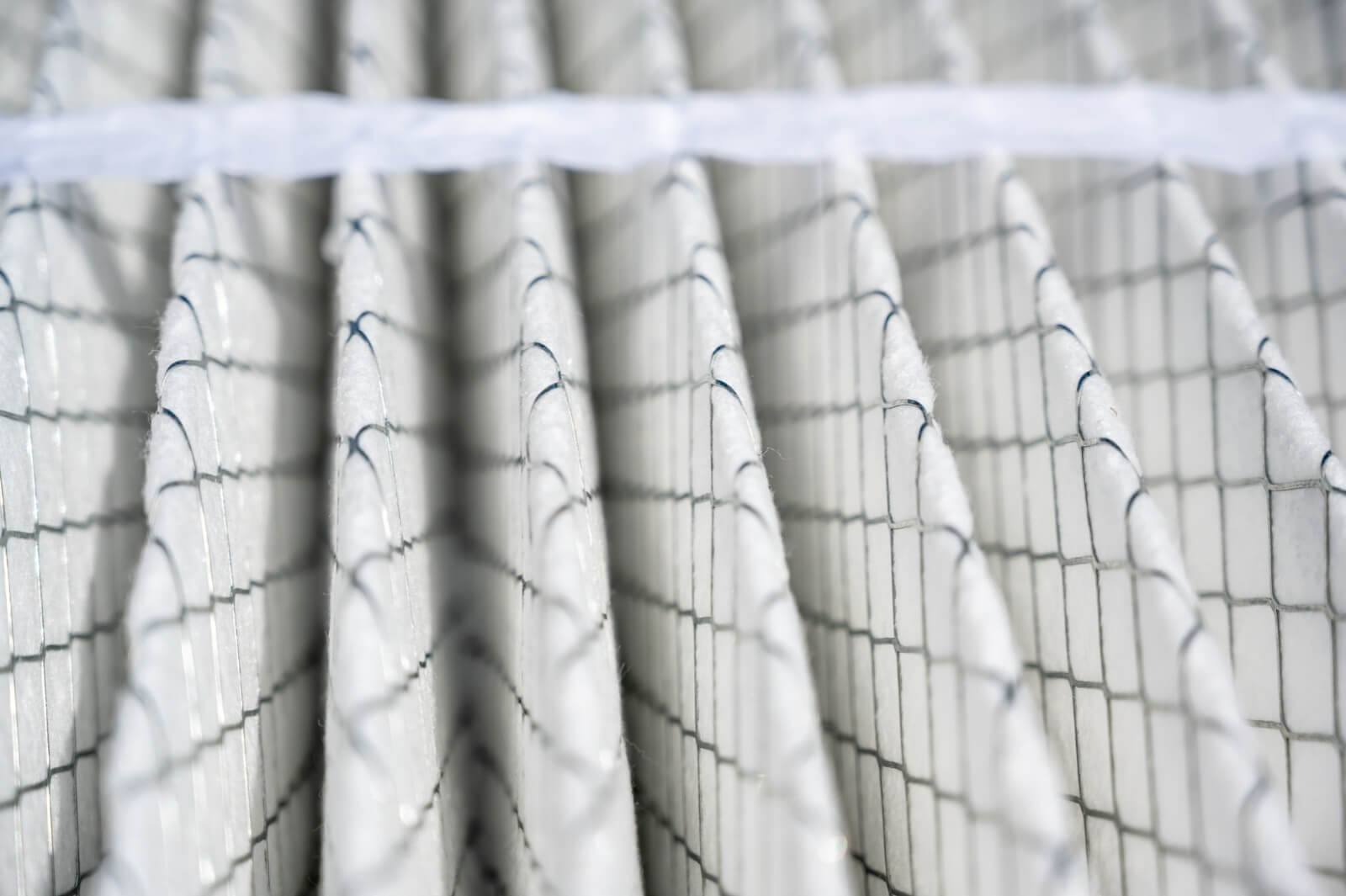
Do you know why it’s important to change your furnace filter regularly? Your furnace filter acts as the first line of defence for your HVAC system, capturing airborne particles that can harm your equipment and affect the air quality in your home. Regular filter changes ensure that your HVAC system runs efficiently and continues to provide clean air for your family to breathe. Continue reading to find out how often you should be changing your furnace filters, and the role these filters play in your home.
How Air Circulates In Your Home
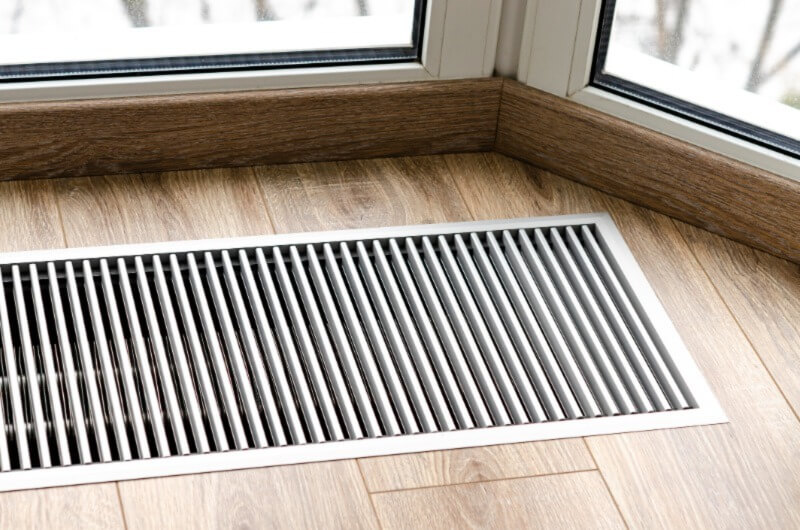
The air circulation process in a home is a critical part of maintaining indoor air quality and comfort — and it all starts with your HVAC (heating, ventilation, and air conditioning) system. The HVAC system is responsible for circulating air throughout your home using a network of ducts, registers, and grilles. The air is either cooled or heated, depending on the time of year, and then distributed evenly throughout the home.
The air circulation process is initiated by the HVAC system’s fan, which pulls air into the system through the return air ducts. The air is then either cooled or heated before being distributed through the supply air ducts and into the rooms of your home.
The furnace filter plays a key role in the air circulation process by filtering out dust, dirt, and other particles to keep your air cleaner for you to breathe. A clean furnace filter allows for unrestricted airflow, ensuring the HVAC system can circulate air efficiently and effectively.
How A Clogged Furnace Filter Affects Your Equipment
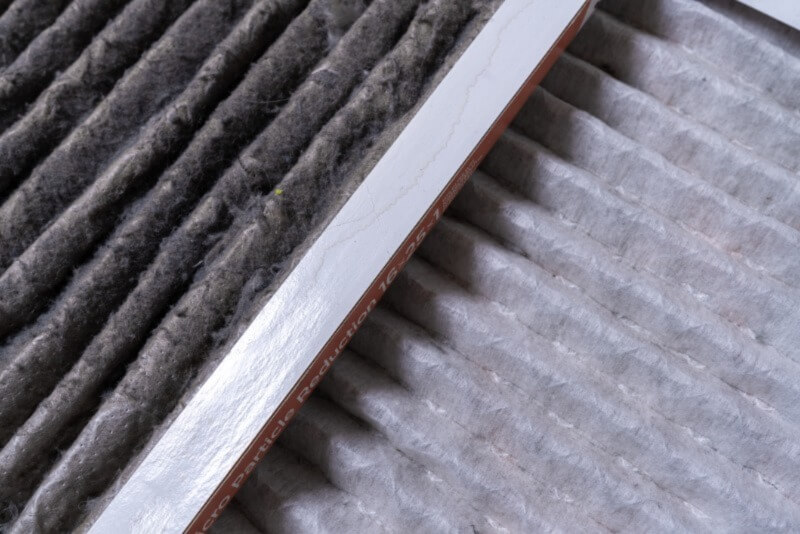
The consequences of a clogged furnace filter can affect both your health and your budget. When the filter becomes clogged with dust and dirt, it restricts the flow of air and causes the HVAC system to work harder to circulate air throughout the home. This results in a decrease in efficiency and increased energy costs. In some cases, it can even lead to equipment damage and costly repairs. An extremely dirty filter can cause your furnace to shut down completely. To avoid these issues, it is essential to change your furnace filter regularly. This small routine will help to maintain the performance of your HVAC system, extend its lifespan, and ensure the air in your home is clean and healthy.
How Often To Change a Furnace Filter
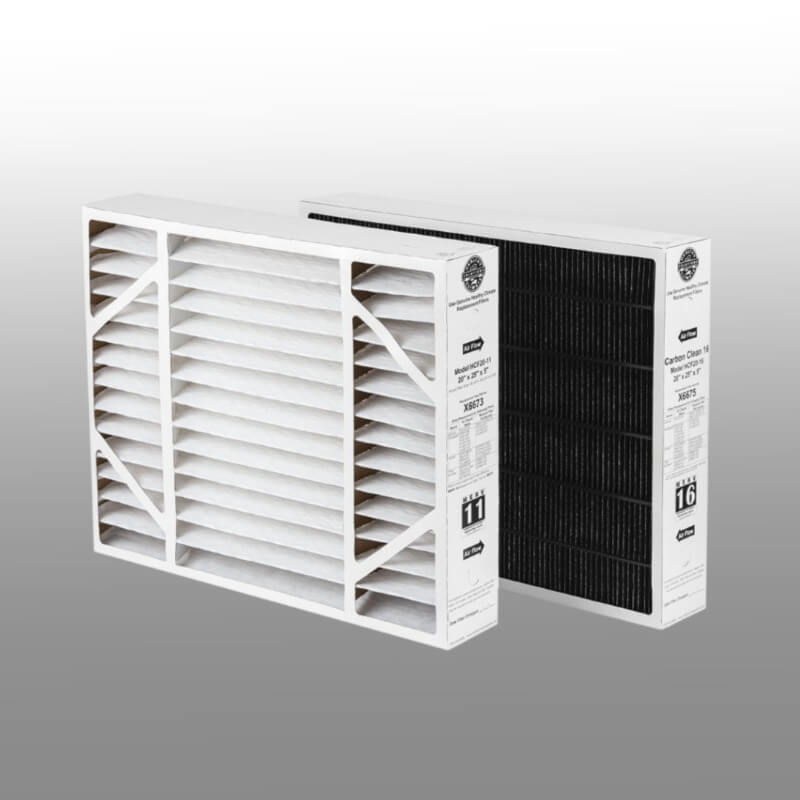
How often you change your furnace filter is a crucial factor in maintaining the performance of your HVAC system and ensuring the air quality in your home. The type of filter you have and the usage of your HVAC system are some of the factors that determine how often you need to change your filter.
If you have a 4” or 5” filter, it is recommended that you change it once every heating or cooling season, as this type of filter is designed to last a heating season. If you use your HVAC system frequently, you have pets or allergy sufferers in your home, or you’ve completed some interior renovation work, you may need to change your 4” filter more frequently.
On the other hand, if you have a 1” filter, it is recommended that you change it every month. A 1” filter is designed to trap smaller particles, such as pollen and pet dander, that can affect the air quality in your home. Regularly changing a 1” filter will ensure that your HVAC system runs smoothly and that the air in your home remains clean and healthy.
Take A Look At This Example
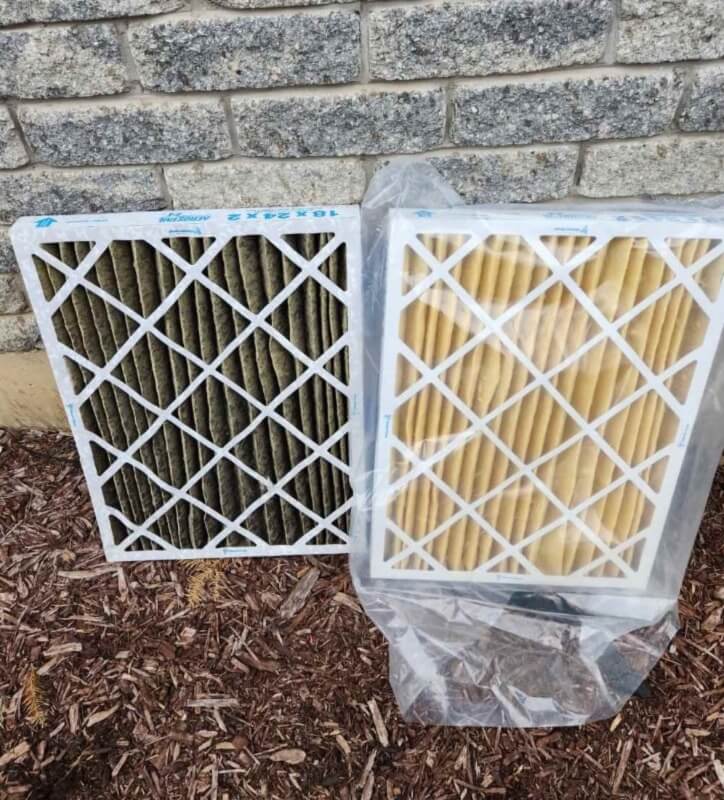
The left side shows what your filter will look like when it is ready to be changed. For comparison, the filter on the right is what a new clean filter looks like for comparison.
Below is a photo of a recent customer’s furnace filter that was left in their furnace for too long. If your filter looks like this, you will want to change it as soon as you can!

While changing your furnace filter on your own is a simple task, it can be easy to forget or overlook. That’s why it’s always a good idea to have a professional take care of your HVAC maintenance. A professional can assess the condition of your system and provide you with the necessary recommendations and services to keep it running smoothly. Contact us today for a no-obligation quote to ensure the longevity of your HVAC system.
Tags:
